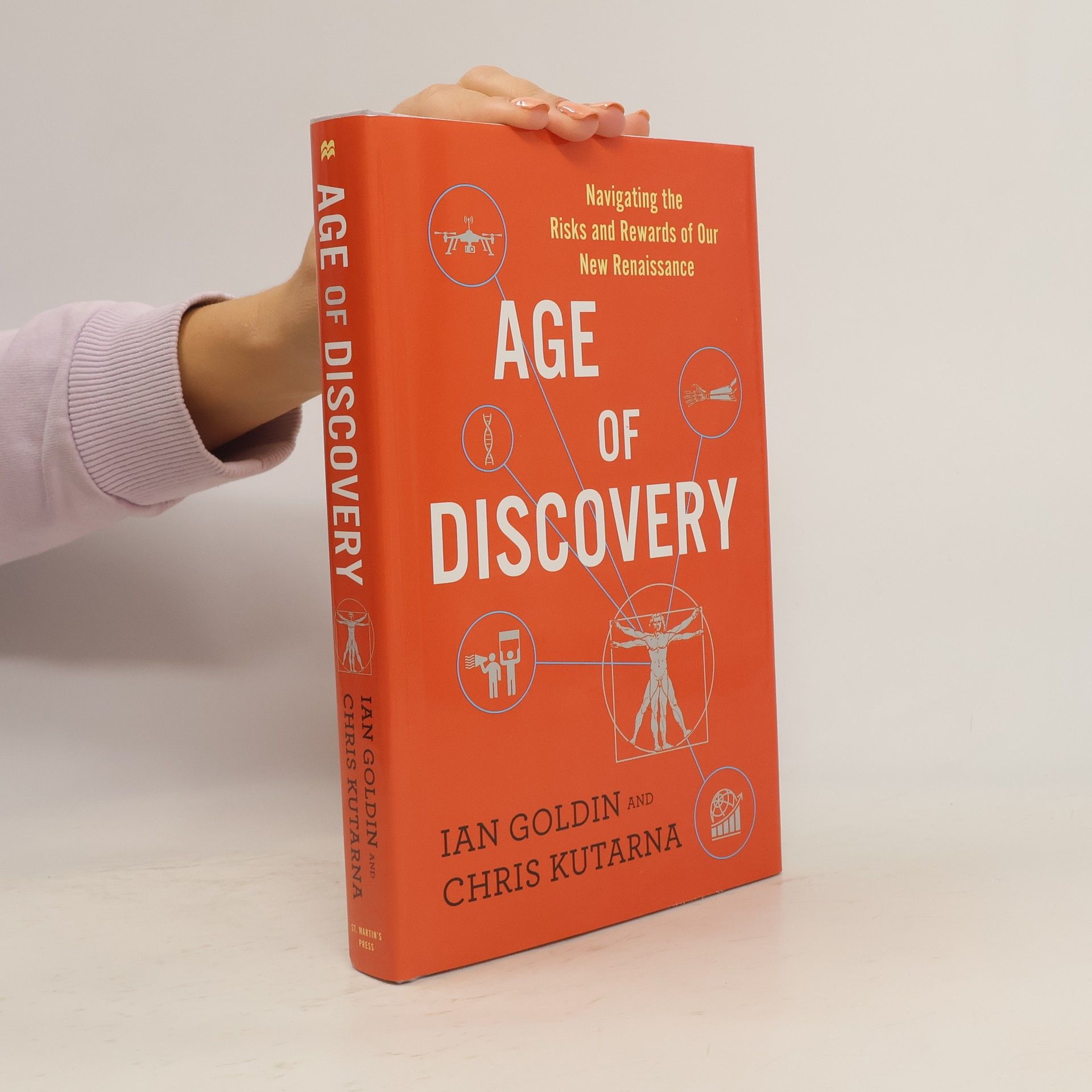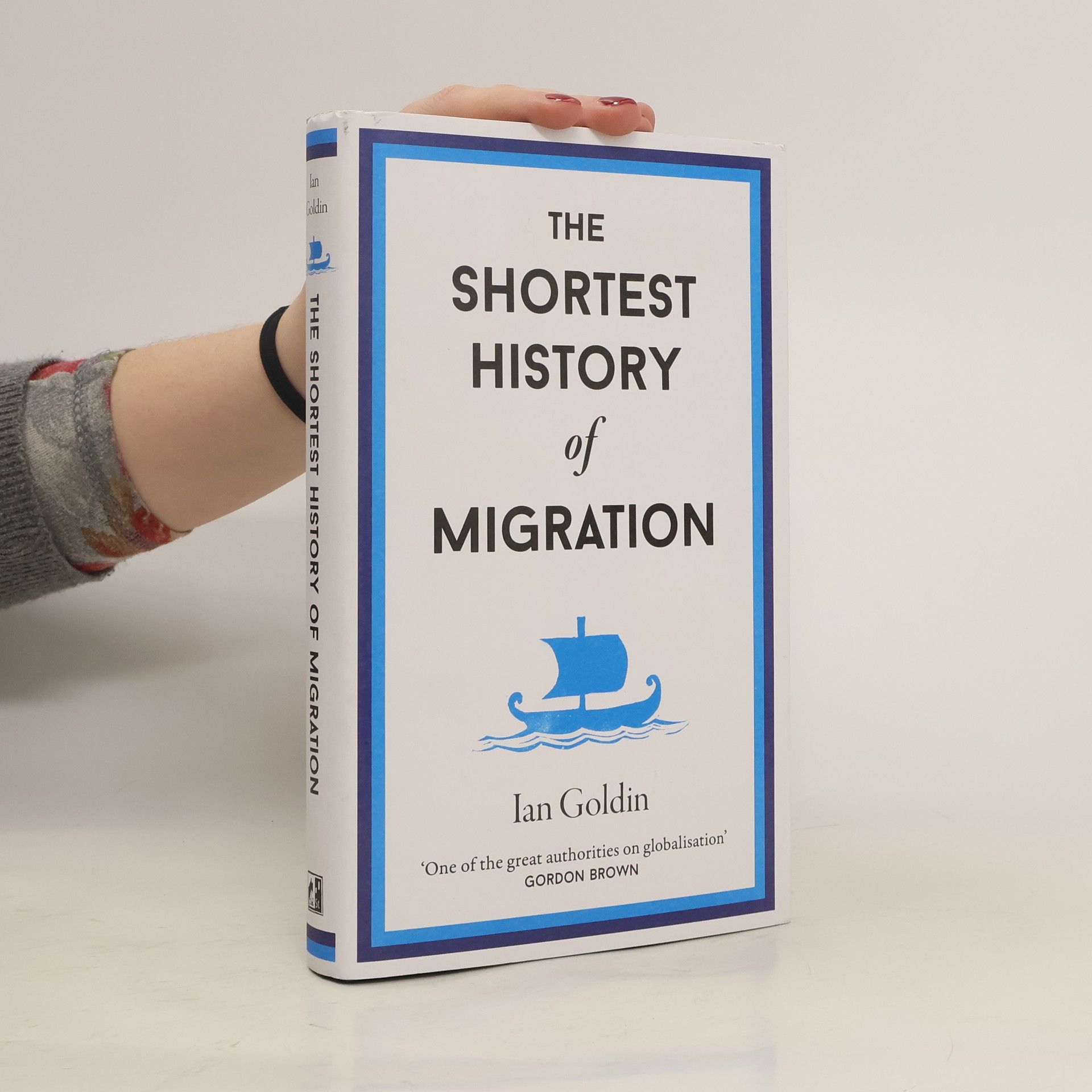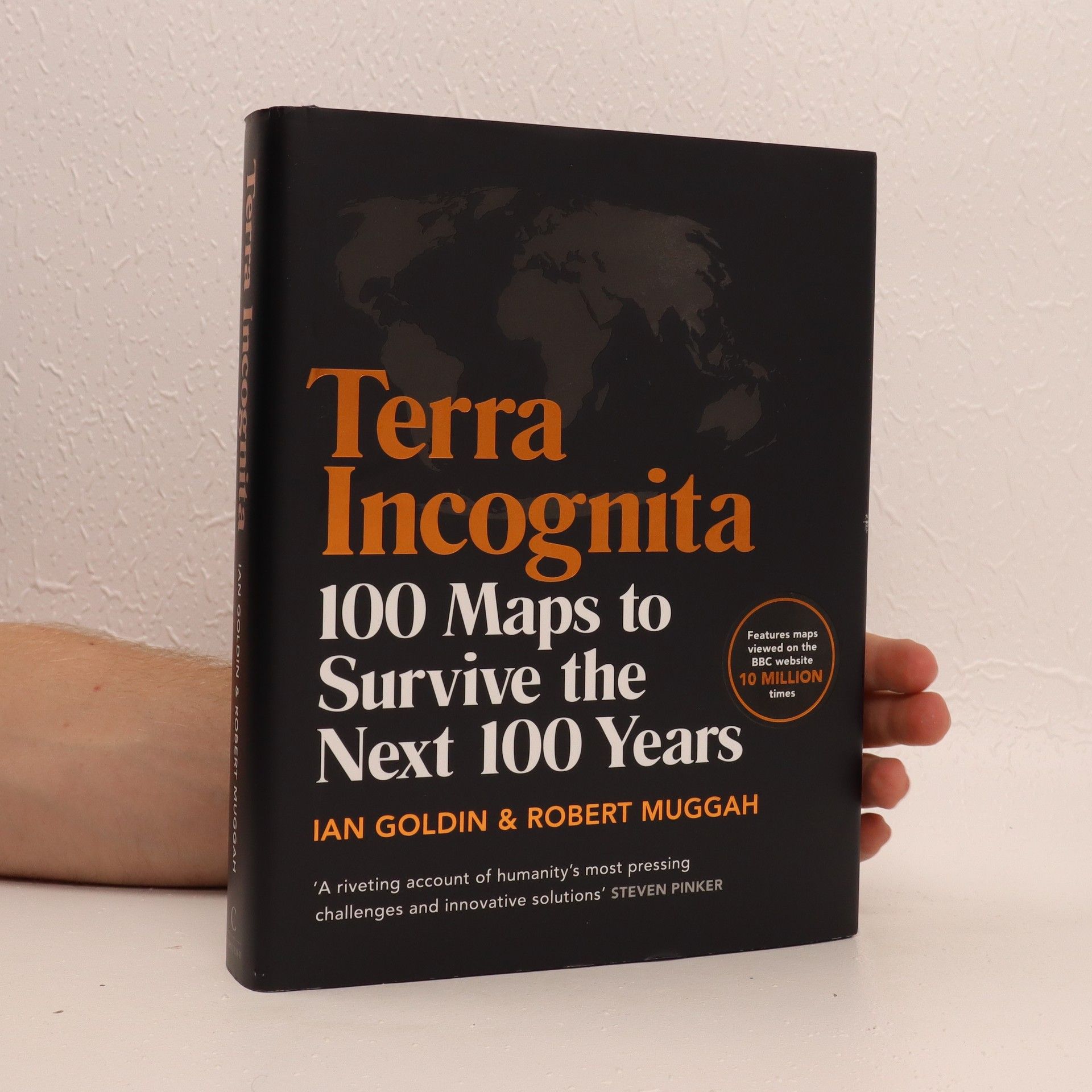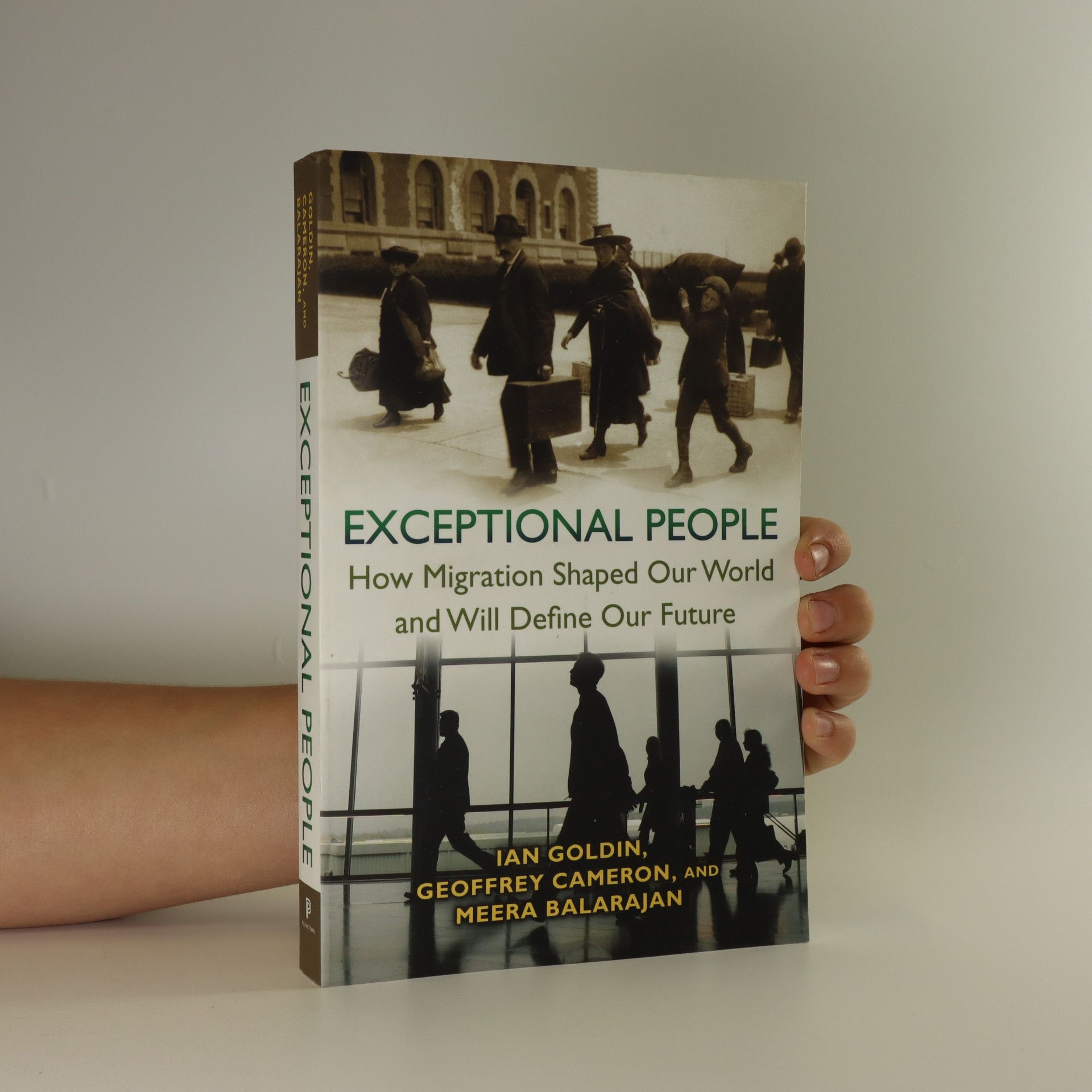From our earliest wanderings to the rise of the digital nomad, here is the story of human migration.For hundreds of thousands of years, the ability of Homo sapiens to travel across vast distances and adapt to new environments has been key to our survival as a species. Yet this deep migratory impulse is being tested as never before. By building ever stronger walls and raising barriers to progress, governments are harming the lives of migrants and threatening the future well-being of our societies.In The Shortest History of Migration, a visionary thinker tells a story of the movement of peoples that spans every age and continent and goes to the heart of what makes us human. Drawn from ancient records and the latest genetic research, it recounts strange, terrible and uplifting tales of migrants past and present, examining the legacies of empire, slavery and war.Finally, Goldin turns his attention to today's world, bringing together the evidence of history with the most recent data to suggest how we might create a more humane future -- one that allows us to reap the tremendous benefits that migration can offer.
Ian Goldin Book order (chronological)
Ian Goldin is a professor at the University of Oxford in England, focusing on globalization and development. As the director of the Oxford Martin School, he explores pressing global challenges. His work delves into the complex societal and economic shifts shaping our world, offering insightful perspectives on potential futures. Goldin strives to identify innovative solutions for a more sustainable and equitable global society.







Visionary Oxford professor Ian Goldin and The Economist's Tom Lee-Devlin show why the city is where the battles of inequality, social division, pandemics and climate change must be faced.From centres of antiquity like Athens or Rome to modern metropolises like New York or Shanghai, cities throughout history have been the engines of human progress and the epicentres of our greatest achievements. Now, for the first time, more than half of humanity lives in cities, a share that continues to rise. In the developing world, cities are growing at a rate never seen before.In this book, Professor Goldin and Tom Lee-Devlin show why making our societies fairer, more cohesive and sustainable must start with our cities. Globalization and technological change have concentrated wealth into a small number of booming metropolises, leaving many smaller cities and towns behind and feeding populist resentment. Yet even within seemingly thriving cities like London or San Francisco, the gap between the haves and have-nots continues to widen and our retreat into online worlds tears away at our social fabric. Meanwhile, pandemics and climate change pose existential threats to our increasingly urban world.Professor Goldin and Tom Lee-Devlin combine the lessons of history with a deep understanding of the challenges confronting our world today to show why cities are at a crossroads – and hold our destinies in the balance.
Atlas der Zukunft
100 Karten, um die nächsten 100 Jahre zu überleben
Das Leben auf unserer Welt hat sich in den letzten Jahrzehnten deutlich verändert, 2020 besonders weitreichend, und viele Umbrüche kommen noch auf uns zu. Unsere gewohnten Landkarten, sowohl die im Kopf als auch die physischen, sind nicht mehr zweckdienlich. Nicht die Aufgliederung in Staatsgebiete, sondern die Darstellung von grenzüberschreitenden Aspekten wird die Zukunft der Kartografie bestimmen und für das gemeinsame Handeln nützlich sein. Auf der Grundlage jahrzehntelanger Forschung kombinieren Ian Goldin und Robert Muggah Satellitenbilder und Projektionen mit ihren aufschlussreichen Analysen. Sie offenbaren viele tiefgreifende Ungleichheiten, die für die Menschheit essenziell werden, wenn die großen Themen wie z. B. Globalisierung, Klima, Verstädterung, Geopolitik, Migration, Ernährung und Bildung nicht angegangen werden. Der ›Atlas der Zukunft‹ ermöglicht einen umfassenden Blick auf globale Trends, die unsere Welt neu gestalten. Dieses Buch bietet eine Aussicht nicht nur auf die Heraus- forderungen, vor denen wir stehen, sondern auch darauf, wie wir sie mit den richtigen Daten und Informationen in den Griff bekommen können.
Rescue
- 336 pages
- 12 hours of reading
An optimistic vision of the future after Covid-19 by a leading professor of globalisation at the University of Oxford.
Based on decades of research, and combining mesmerising, state-of-the-art satellite maps with enlightening and passionately argued analysis, Ian and Robert chart humanity's impact on the planet, and the ways in which we can make a real impact to save it, and to thrive as a species. Learn about: fires in the arctic; the impact of sea level rise on cities around the world; the truth about immigration - and why fears in the West are a myth; the counter-intuitive future of population rise; the miracles of health and education that are waiting around the corner, and the reality about inequality, and how we end it. The book traces the paths of peoples, cities, wars, climates and technologies, all on a global scale. Full of facts that will confound you, inform you, and ultimately empower you, Terra Incognita guides readers to a new place of understanding, rather than to a physical location.-- Provided by publisher
Epocha objavov: Ako rozumieť rizikám a výdobytkom našej novej renesancie
- 360 pages
- 13 hours of reading
Ľudstvo je na vrchole. A zároveň sme veľmi zraniteľní. Svet sa nachádza na sklonku novej renesancie a stojíme pred otázkou, či sa nám podarí vyťažiť z nej to najlepšie a vyhnúť sa chaosu a rozvratu. Na celom svete sa zlepšuje zdravie a vzdelanie, rastie bohatstvo. Veda prosperuje ako nikdy predtým. Ale tie isté sily, ktoré nám môžu priniesť mnoho výhod, sú zdrojom ohrozenia. V tejto situácii sme už raz boli. Prvá renesancia a osobnosti ako Kolumbus, Kopernik či Gutenberg prekreslili mapy nášho sveta, dali voľnosť informáciám a posunuli západnú civilizáciu zo stredoveku do počiatkov modernej éry. Zaplatili sme ale veľkú daň: spoločenské a náboženské rozkoly, politický extrémizmus, ekonomické šoky, pandémie a iné nepredvídateľné dôsledky objavov a rýchlych zmien. Aj dnes, v našej druhej renesancii, keď čelíme terorizmu, rozpadu politických únií, utečeneckej kríze a nerozvážnym svetovým lídrom, môžeme prosperovať – ak sa dokážeme poučiť z minulosti. Epocha objavov prináša prehľad najväčších súčasných úspechov ľudstva, ale aj hroziacich rizík. Je v našich rukách, ktorý scenár sa naplní.
Ian Goldin and co-author Chris Kutarna define the present day as a New Renaissance - a rare moment of flourishing genius and risk that promises to reshape all our lives. Da Vinci, Columbus, Copernicus, Luther, Gutenberg. These names recall an era in which an unprecedented rush of discovery and disruption broke through long-standing barriers and broke down equally long-standing powers. This rush entangled the whole world politically, economically and intellectually, and reshaped society. Now, the same forces that converged 500 years ago to spark genius and upend social order -great leaps in science, trade, migration, technology, education and health - are once again present, only stronger and more widespread. In Age of Discovery , Ian Goldin and Chris Kutarna show how we can draw courage and wisdom from the last Renaissance in order to fashion our own golden age out of this New Renaissance. Whether we’re seized by Gutenberg or Zuckerberg; the discovery of the Americas or the rise of China; copperplate or silicon etching; the Bonfire of the Vanities or the rise of ISIS; the spread of syphilis or the Ebola pandemic - a Renaissance moment, then and now, forces humanity to give its best just when the stakes are highest. Age of Discovery navigates the crises of our time and helps us all define a legacy that the world will still celebrate half a millennium from now.
Je planeta Země už plná?
- 336 pages
- 12 hours of reading
„Počet obyvatel zatěžuje naši planetu a ta je jen stěží schopna nás uživit...“ Tento výrok, přisuzovaný Tertullianovi z 2. století, varoval před kolapsem populace, tehdy čítající přibližně 190 milionů lidí. Dnes, po 40 letech, jsme dosáhli 7 miliard, avšak tempo růstu se zpomaluje. Počet obyvatel není jediným faktorem, který určuje, zda je Země přeplněná. Žijeme v „globální vesnici“, kde čelíme problémům jako změny klimatu, nedostatek vody a potravin, využívání neobnovitelných zdrojů a migrace. Jaké etické důsledky má růst populace? Je spotřeba bohatých udržitelná? Může být tato úroveň rozšířena na všechny? Jaký je aktuální stav Země a jak se změní s rostoucí populací a příjmy? Co mohou jednotlivci, firmy a vlády udělat pro zmírnění negativních dopadů a využití pozitivních aspektů populačního růstu? Na tyto otázky odpovídají akademici z různých oborů na Oxford Martin School, kteří se zabývají současností i budoucností naší planety.
Exceptional people. How migration shaped our world and will define our future
- 371 pages
- 13 hours of reading
Throughout history, migrants have driven human progress, sparking innovation, spreading ideas, alleviating poverty, and establishing a global economy. As the world becomes increasingly interconnected, the number of people motivated to migrate will rise. This book examines the significant benefits of this trend for both countries and migrants. It challenges the notion that increased migration is undesirable, advocating for governance approaches that embrace international mobility. The authors delve into the historical significance of human migration, tracing its impact from the first migrations out of Africa to the present day, highlighting how the exchange of ideas and technologies has enriched communities and fueled economies. They illustrate how migrants connect markets, fill labor shortages, and enhance social diversity, while also providing individuals an escape from poverty, human rights violations, and oppressive regimes. Despite these advantages, current migration policies are often rooted in misconceptions and fears about the long-term effects of migration. The authors argue that future policies will crucially shape societies' ability to harness migration's benefits while managing its risks. This book serves as a guide for robust debate and action, outlining the history and current state of international migration while offering practical recommendations to ensure that everyone can benefit from its inevitable growth.


